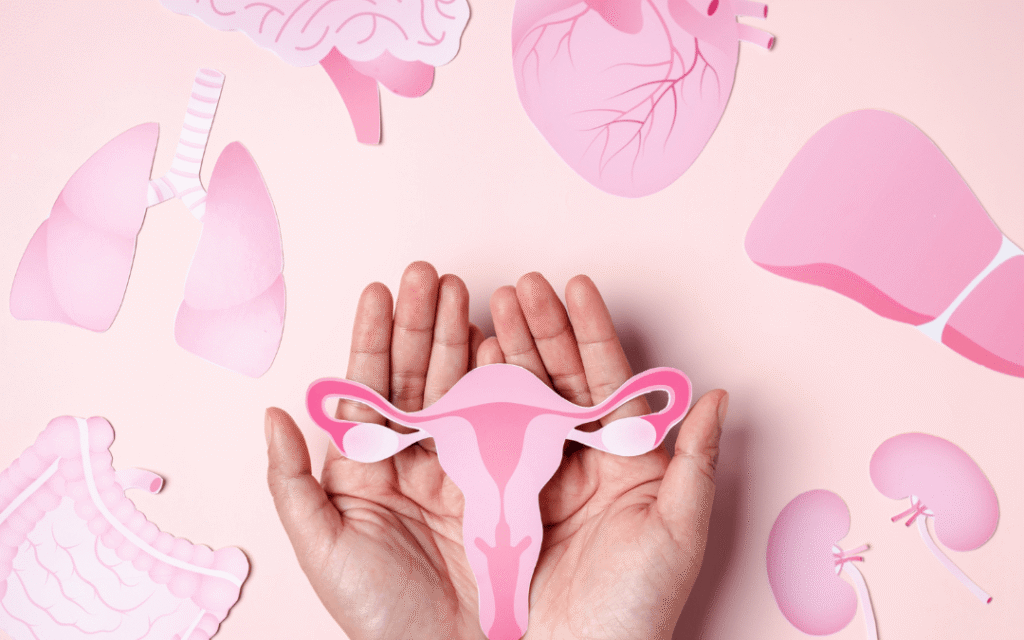Fertility in women is a complex biological process regulated by several hormones that work together to ensure ovulation, egg quality, and uterine preparation for pregnancy. When these hormones become imbalanced, the reproductive system may not function properly, leading to difficulty in conceiving. Studies show that nearly 40% of infertility cases in women are linked to hormonal disorders. Understanding how these hormones affect the reproductive system is crucial for both prevention and treatment.

The Role of Hormones in Female Fertility
The female reproductive system relies on a delicate balance of hormones. The hypothalamus, pituitary gland, and ovaries form the main control system, also known as the hypothalamic-pituitary-ovarian axis. Hormones like estrogen, progesterone, follicle-stimulating hormone (FSH), luteinizing hormone (LH), and prolactin are key regulators of fertility. Any disruption in their production or function can cause irregular menstrual cycles, anovulation (failure to release an egg), or poor egg quality.
Key Hormones and Their Functions
- Estrogen: Stimulates growth of the uterine lining and regulates ovulation.
- Progesterone: Prepares the uterus for implantation and supports early pregnancy.
- FSH (Follicle-Stimulating Hormone): Stimulates ovarian follicles to mature eggs.
- LH (Luteinizing Hormone): Triggers ovulation and egg release.
- Prolactin: Supports milk production but, when elevated, can suppress ovulation.
- Thyroid Hormones (T3, T4, TSH): Regulate metabolism, which indirectly influences reproductive health.
Common Hormonal Imbalances That Affect Fertility
Polycystic Ovary Syndrome (PCOS)
PCOS is one of the most common hormonal disorders causing infertility in women. It is characterized by elevated androgen levels (male hormones), irregular periods, and multiple small cysts in the ovaries. Women with PCOS often have insulin resistance, which further disrupts ovulation. Research indicates that PCOS accounts for up to 25% of female infertility cases.
Thyroid Disorders
Both hypothyroidism (low thyroid activity) and hyperthyroidism (overactive thyroid) interfere with fertility. Low thyroid hormone levels can lead to irregular or absent ovulation, while high levels may cause miscarriage or early pregnancy complications. Women with untreated thyroid disorders often experience difficulty conceiving.
Hyperprolactinemia
An excess of prolactin, usually caused by pituitary gland dysfunction, can prevent ovulation by suppressing FSH and LH. This condition often leads to irregular cycles or amenorrhea (absence of menstruation).
Luteal Phase Deficiency
The luteal phase is the second half of the menstrual cycle, during which progesterone levels should rise to support implantation. If progesterone is insufficient, implantation may fail, leading to recurrent miscarriages or infertility.
Premature Ovarian Insufficiency (POI)
POI occurs when the ovaries stop functioning before the age of 40. It is associated with low estrogen and high FSH levels. Women with POI may experience irregular periods or early menopause, making conception difficult.
Insulin Resistance and Fertility
High insulin levels, often associated with obesity or metabolic syndrome, can disrupt ovarian function and hormone production. This contributes to anovulation and poor egg development.
Symptoms of Hormonal Imbalances Affecting Fertility
Recognizing the symptoms early can help in diagnosis and treatment. Some common indicators include:
- Irregular or absent menstrual cycles
- Unexplained weight gain or difficulty losing weight
- Excess facial or body hair (hirsutism)
- Severe acne or oily skin
- Hair thinning or hair loss
- Hot flashes or night sweats at a young age
- Low sex drive or fatigue
Diagnosis of Hormonal Imbalances
Doctors use several diagnostic tools to identify hormonal imbalances in women struggling to conceive:
- Blood tests to measure hormone levels (FSH, LH, estrogen, progesterone, prolactin, thyroid hormones, insulin).
- Ultrasound scans to examine ovarian cysts or uterine lining thickness.
- Ovulation tracking using basal body temperature and luteal phase analysis.
- MRI or CT scans in cases of suspected pituitary tumors.
Treatment Options for Hormonal Imbalances
Lifestyle Modifications
- Weight management: Reducing excess weight can improve insulin sensitivity and restore ovulation.
- Balanced diet: A diet rich in whole grains, lean protein, and omega-3 fatty acids helps regulate hormones.
- Exercise: Regular physical activity reduces insulin resistance and promotes hormonal balance.
- Stress management: Stress increases cortisol levels, which may disturb ovulation.
Medical Treatments
- Clomiphene citrate (Clomid): Stimulates ovulation in women with PCOS or irregular cycles.
- Metformin: Improves insulin resistance and restores ovulation in PCOS patients.
- Thyroid medications: Levothyroxine for hypothyroidism, antithyroid drugs for hyperthyroidism.
- Hormonal therapy: Progesterone supplements for luteal phase defects, estrogen therapy for ovarian insufficiency.
- Surgery: Laparoscopic ovarian drilling for PCOS or surgery to remove pituitary tumors.
Assisted Reproductive Techniques (ART)
When medical treatment is not effective, women may turn to IVF (In Vitro Fertilization) or IUI (Intrauterine Insemination). These methods bypass hormonal challenges and increase chances of conception.
Awareness and Prevention
Raising awareness about hormonal health is crucial for reducing infertility rates. Many women ignore early signs of hormonal imbalance until it becomes a serious issue. Regular health check-ups, maintaining a healthy weight, and seeking timely medical advice can prevent complications. Educational programs should highlight the impact of lifestyle, diet, and stress on reproductive health.
Awareness Tips:
- Avoid self-medication for hormonal issues.
- Get regular thyroid and hormonal level screenings.
- Promote awareness in schools and workplaces about reproductive health.
- Support women with infertility by reducing stigma and encouraging medical consultation.
Case Study: The Impact of Early Diagnosis
A study conducted by the American Society for Reproductive Medicine found that women who received early treatment for PCOS had 40% higher chances of natural conception compared to those who delayed treatment. This highlights the importance of timely diagnosis and medical intervention.
Conclusion
Hormonal imbalances are among the leading causes of female infertility, yet they are also among the most treatable conditions when diagnosed early. Disorders like PCOS, thyroid imbalance, hyperprolactinemia, and luteal phase deficiency disrupt ovulation and reduce fertility, but with proper medical care, lifestyle modifications, and awareness, many women can restore hormonal balance and achieve pregnancy. The key is understanding symptoms, seeking medical help, and spreading awareness to ensure women receive the right treatment at the right time.